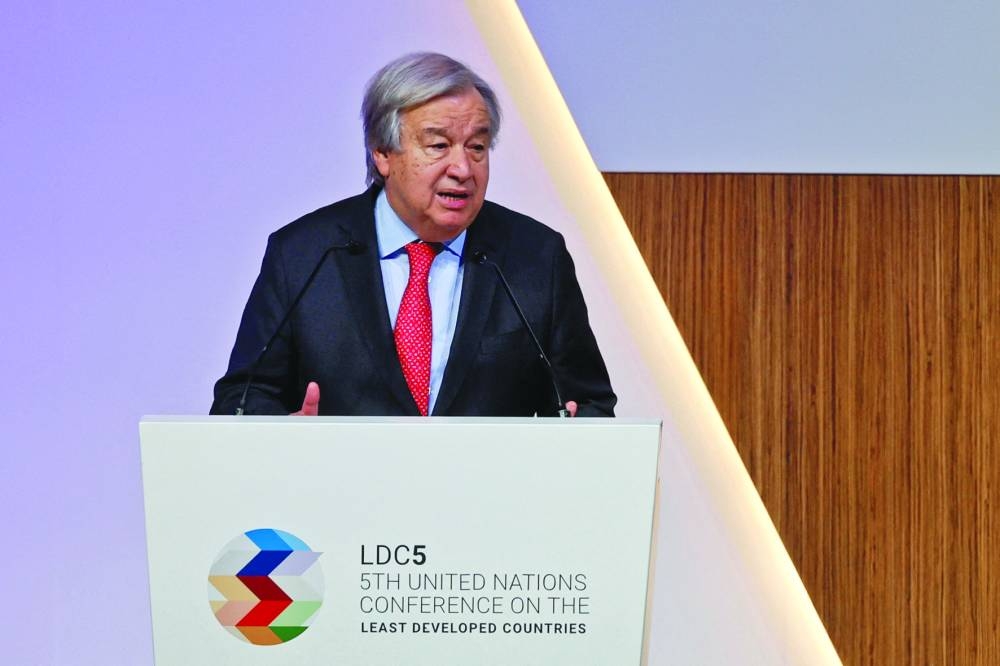The external debt of Sudan is colossal: almost $60bn. Overall, this has amassed due to arrears; it reaches 150% of the local GDP and it is about 10 times versus the country’s exports. This, undoubtedly, is horrendous. Including Sudan, there are 46 LDCs with meagre human growth indicators and typical earnings per person of about $1,000 per year.
In his speech at the (LDC5,) summit, al-Burhan stated several encounters and convolutions facing Sudan. There were some hints pointing towards the political and military present situation in the troubled country. Here, one might remark that on the same day, Saturday, March 4, 2022, Rapid Support Forces (RSF) leader Mohamed Hamdan Daglo AKA Hemeti attacked al-Burhan.
Moreover, his deputy, eventually his brother, Abd al-Rahim Dagalo, also reacted, shouting “Stop beating around the bush.” Even though (RSF) is, and was, an effective part of the coup d’état of October 25, 2021, Abd al-Rahim Dagalo’s speech seemed to be directed stanchly at the army leader who has controlled power in the country: “Our message to our brothers in power is HAND OVER POWER TO THE PEOPLE.” He added, “we have blanketed a lot of concerns in our hearts, and we have been silent for quite a long time, we don’t want to become a reason (for what will happen), but then again we will not budge or go back from the basic principles that unite and do justice to the Sudanese people.”
Tension is evident. It is not burning but unquestionably smouldering. Few observers would now have the same opinion that the clash between the SAF and the RSF is inevitable. Cameron Hudson, an expert on Sudan says, “Signs of a power struggle at the top of Sudan’s ruling echelon are growing as the country’s supposed transition to civilian rule remains uncertain.”
A good few believe that Sudan is advancing towards a bloodstained armed conflict because of the recent overshadowing reality which is exemplified by political dismemberment, absence of nationwide trust, and weakness in handling the country’s fundamental problems. UN-assigned independent rights experts have previously castigated the ongoing crushing against anti-coup demonstrators, pointing to “continued reports of protestors being killed, forcibly disappeared, injured, tortured, and subjected to sexual and gender-based offensives.
Abd al-Rahim Dagalo criticised al-Burhan’s killing of peaceful demonstrators, “From today onwards, after the death of the martyr (a protester killed in the East Nile this week), we will not allow any killing of young demonstrators and we will not allow any arrest of politicians.”
One might say that this is the newest example of Hemeti brothers’ shot to expand their standing as the people men. And they’re spending big. Yet the RSF is a paramilitary born from the notorious Janjaweed militia accused of atrocities in Blue Nile State, South Kordofan: more precisely, in Darfur. The Sudanese Armed Forces and the Rapid Support Forces fought together in Darfur with hands joined. Today, they are not agreeing with each other. Moreover, they are at odds. Notwithstanding the evidence, one cannot tell if collision between SAF and RSF is imminent or impossible.
Truly, as al-Burhan said at the summit of Doha UN LDC5 “several encounters and convolutions are facing Sudan” the most precarious of which is the militarisation of its political landscape. The transition’s sustainability is questionable, expressly, in the face of popular opposition, in a difficult economic environment, and with civilian forces divided. Will Doha UN LDC5 be of help? Additionally, would it help, bearing in mind that the LDC5 is a decennial event to fast-track workable development in the nation-state where transnational succour is required? It is expected that actual programmes and solid deliverables will be revealed that will answer LDC5 different questions.
Sudan is in urgent need of financial and political support. Economic stabilisation is closely linked to the financial assistance provided by foreign partners, including the United States, IMF, World Bank, France, Saudi Arabia, United Arab Emirates, and other Arab countries. This aid, in turn, is dependent on the partners’ acceptance of the new institutional arrangements. Even if these conditions are met, household consumption (70% of GDP) will remain constrained by sky-high unemployment, violence, and insecurity.
- Mohamed Sulieman Elfaki al-Shazly is a prolific writer and senior TV producer. The British/Sudanese author has won several awards for his work, including the Tayeb Salih International Prize for Creative Writing.

